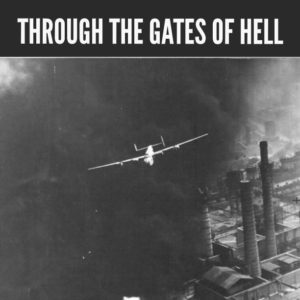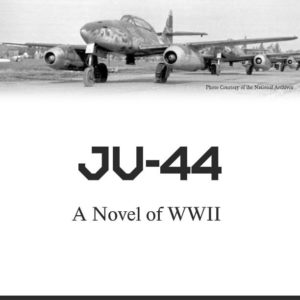In the English alphabet the 24th letter is X, which by itself often represents the unknown in an algebraic equation, a faceless entity, or a spot on a map. X could mark post-war Europe on a map in the middle of the 20th Century too. But X is not sufficient to describe mankind’s cruelty during those first years of peace.
All civilizations have their alphas and omegas, and no civilization is immune to war. The omega of war completes the circle to a new and hopefully more promising and peaceful alpha. May 8, 1945, V-E Day, was the omega of the war in Europe. But this time the circle was broken. There was no return to alpha. Omega was not the last dark days of war but the last cold ray of sunlight on a descent into a hell on earth, a seemingly endless nightmare so terrible that in their despair the vanquished and the victimized could not help but yearn to relive omega when nothing worse than bombs rained down upon their heads, turned their homes into rubble, and their possessions into ashes. If they had nothing else left at the omega, they still had their dignity. Now that, too, was gone.
Not only the guilty but the innocent victims of the war suffered intolerable deprivation too. Homeless, stateless, penniless, and hopeless, they were shunned and shunted through the portals of a hostile world that had no place for them.
These were the Orphans of Omega, and millions of them died from starvation, disease, exposure, abuse, exhaustion, neglect, murder, and suicide.
“The Orphans of Omega” is a novel about this often overlooked and shameful period, the first several years in the aftermath of World War II in Europe when the victors chose retribution over rehabilitation and allowed to flourish the same religious, racial, and ethnic hatreds that had consumed the polyglot continent for centuries and culminated in two great and bloody world wars. Not until the advent of the Marshall Plan in 1948, three years after the war had ended and many more millions had unnecessarily suffered and died, did the victorious Americans and British come to their senses and commit to rebuilding the modern Europe we know today.
This tragic tale is told as seen through the eyes and travails of a diverse group of people.
Sigrid Sonntag, Kurt Vogelsang, and Petra Rademacher are three young Germans who have been friends since childhood, have escaped most of the ravages of war until the final months because they had the good fortune to grow up far from the cities leveled by bombs, and therefore find themselves ill-prepared for the anarchy and inhumanity that reigns when it’s over. Vogelsang, a Waffen-SS officer who is taken prisoner at the end of the war, is denied his rights under the Geneva Convention by the vindictive American General Dwight Eisenhower, who ignores its provisions. Vogelsang must somehow try to survive nearly two years of captivity under inhumane conditions while those soldiers around him in the camp die of disease, exposure, and starvation.
Pyotr Kuklin, a proud young Cossack who dreams of returning to his family’s homeland, joins the German army’s Cossack Cavalry Division to fight against the Russian Communists, who have persecuted and murdered his people for a generation. But the Cossacks are betrayed at war’s end by the British, to whom they surrendered only to find themselves and their families turned over to Stalin who wants them purged once and for all. Kuklin’s German commanders, including General Helmuth von Pannwitz and Colonel Kaspar von Trockenau, are declassified as prisoners of war and face the same fate at the hands of the Russians.
The widowed Anke Hauser and her teenage daughter, Irmgard, are among the millions of Volksdeutsche, people of German heritage who have lived in Poland and elsewhere throughout Central and Eastern Europe for nearly 200 years, who find themselves raped, robbed, and murdered by Red Army soldiers. Forced off their land with little more than the clothes on their backs and sent back to a devastated country they have never known and has no place for them, they must live by their wits if they are to live at all.
Jakob Silberberg, a Lithuanian Jew who has escaped from the infamous Treblinka concentration camp and the clutches of Polish partisans who hate his people just as much as the Nazis, finds himself in an American concentration camp at the end of the war. He desperately wants to emigrate to Palestine. But British warships are blockading the ports while the government curries favor with the Arabs who want to keep the Jews out.
Behind all this misery are the vengeful politicians who ignore the lessons of history and rewrite international laws to suit their own agendas: American President Franklin Roosevelt and his Secretary of the Treasury, Henry Morgenthau, who want to consign the German people to the Bronze Age; Russian premier Josef Stalin, who brashly expands his empire westward with little opposition from his war-weary allies and enslaves millions of conquered peoples to rebuild his ravaged country; and Winston Churchill, who has seen the glorious British Empire bankrupted and ruined by the war and has little choice but to do the bidding of his two powerful allies.
And so the Orphans of Omega are left to scrap for their survival.






